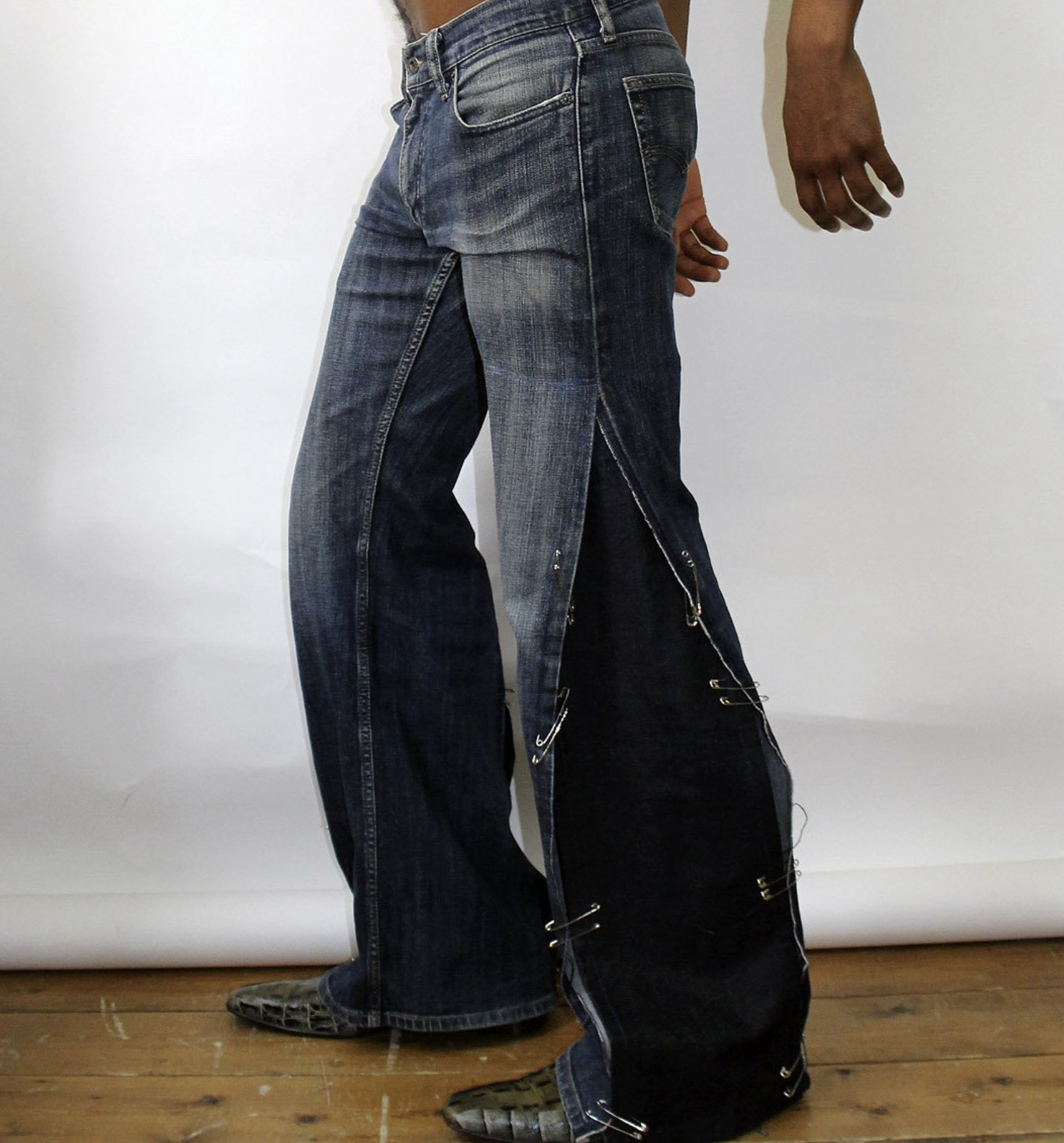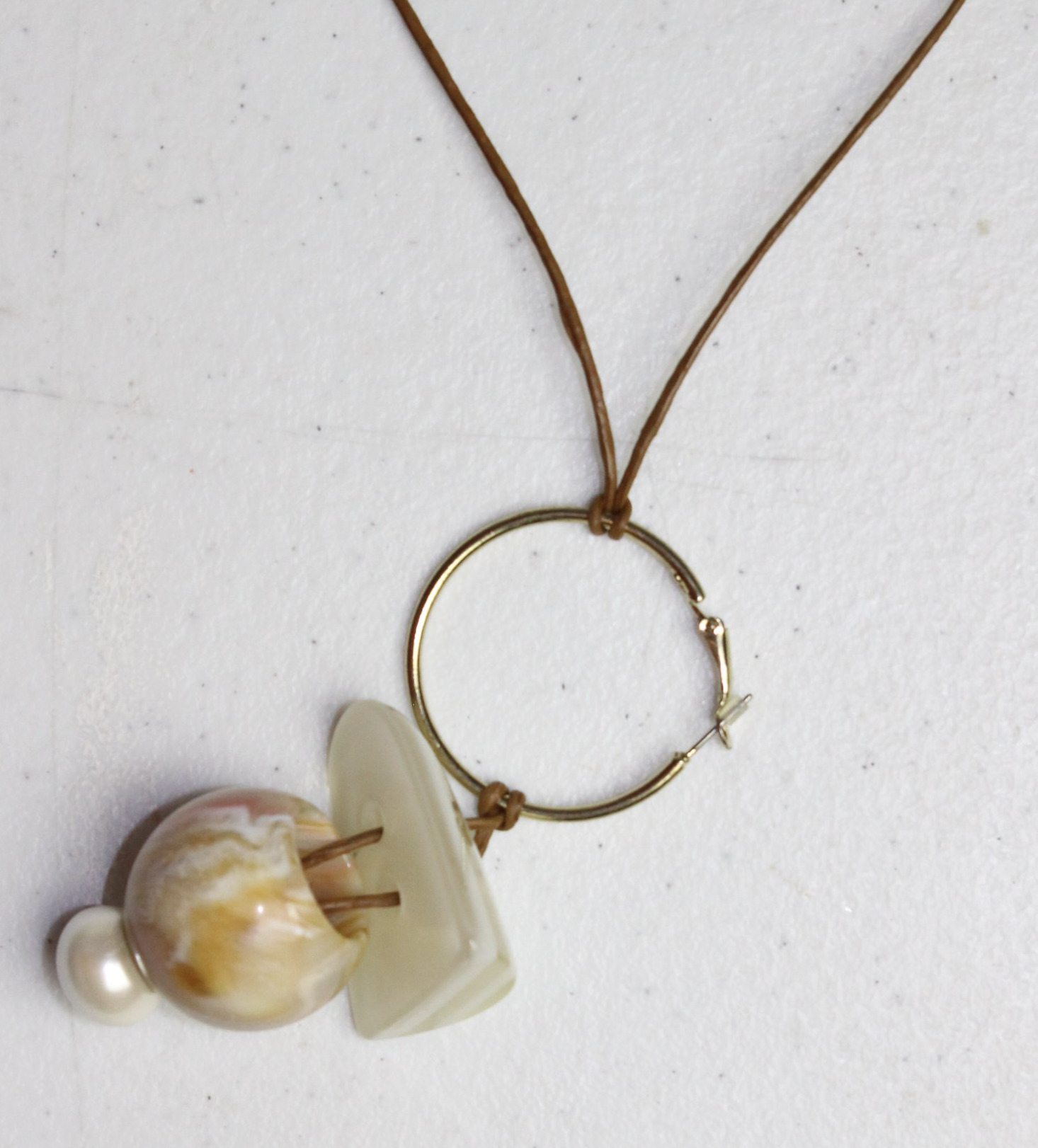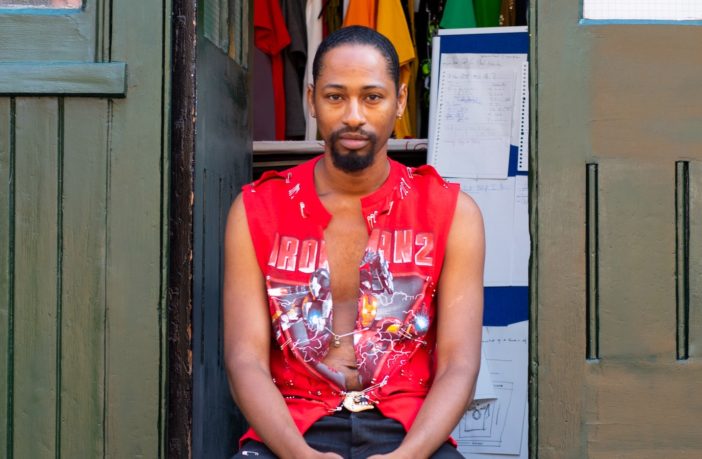For Jamaican-born fashion designer Jawara Allenye, fashion has always been a part of his life. His love for fashion grew over time from seeing the love his mother and aunts had for clothing and accessories. From the time Allenye was old enough to draw in coloring books to graduating from the London College of Fashion, sketching clothing was his thing. He finds inspiration for creating new collections from the everchanging style of Jamaica’s natives. For Allenye designing is all about keeping his individuality as a creative and not getting lost in how or what the industry wants him to create.
Below, we caught up with the London-based designer and spoke to him about his background and how his unisex designs offer us a chance to control our own narrative on our own terms.
EBONY: Tell us a little bit about your heritage and background.
Jawara Allenye: I was born in the countryside of Jamaica in Mandeville, which for the longest time, as a kid, I thought was living in a city. Growing up there though was very interesting as I moved around Mandeville quite a lot; it offered a diversity in experiences and people I met growing up. There was a large community of Chinese Jamaicans and Indian Jamaicans, my household was very diverse as well as I grew up with 8 cousins essentially as siblings. I grew up with my mother’s family who were Christian but my father was Rastafarian, and I was reminded of this at every opportunity. When I was 12, I moved to the Cayman Islands with my mother and brother, which offered me a completely different POV on life in the Caribbean. The two countries are only 45 minutes away from each other; yet, the cultures and societies are starkly different. I moved to London at 20 to study fashion and have been here ever since.
How did you get into design?
It might be a bit of a cliché but I’ve actually been designing ever since I could hold a pencil. I was very shy and reserved as a child and I remember always having a little sketchbook with me everywhere I went. I was obsessed with drawing sketches of women in fabulous outfits. I guess it might have been inspired a little bit by my mother and aunts who all had a love for fashion as it allowed them to express themselves and move through social spaces ,and in ways upgrade their economic standing within society. I come from a very humble background, where my 5 cousins and I would all climb into bed together to sleep at night. We didn’t have much but fashion allowed us to feel like we were important. But fashion in Jamaica does work like this. We might not have much but our identity, expression and style are used as armor and a social currency, if you must.
How has your Jamaican heritage informed your designs? Give us some examples
A lot of the work I do as a designer is about studying identity and style. My work imagines characters and tells narratives of different ways of existing and modes of dress. Breaking down stereotypes and archetypes and painting a picture of a new future. Now that I think of it, in many ways, this interest comes from the way we switch up our style in Jamaica and the way our personal sense of style is such an important part of how we express ourselves. My work also looks at a lot of circular and sustainable ethics which has always existed in Jamaican culture through the prevalence of hand-me-down histories in our households. Nothing ever gets wasted; everything finds a purpose. I think my design ethos is very closely linked to my identity coming from Jamaica as there my upbringing was very circular. I remember how shocked I was when I moved away from Jamaica to realize that Earth Day was not an internationally celebrated event. In school, we were always reminded of the mantra :Reduce, Reuse, Recycle,” which today has seeped its way into my work in fashion as: “Rework, Repurpose, Revalue.”

Tell us about your latest collection
My latest collection is called the “New World” and is set in a mise-en-scene where a pirate ship crashes into a luxury yacht. This in many ways is an allegory for my background growing up between Jamaica and the Cayman Islands, but also an allegory for where we are in society how. How society is crashing into larger political structures that hold up the 1 percent. This though is not new and the New World is a recalling of history that reminds us that we’ve been here before.
Growing up in the Caribbean, my history and the way it’s been told start from the idea of the new world.—a time of “discovery,” when we “the savages” were discovered by the Old World and incidentally eradicated. The New World consisted of the Americas and the Caribbean. Places that had a burgeoning and lively history “pre-discovery.” Today, with much of the Caribbean story still not being told from our point of reference, this collection examines how we tell a story of our own history when oour story has been fragmented. How do you present a story of the Caribbean that starts with the Caribbean experience?
The fashion within the collection presents a view of luxury and beauty created from shreds and scraps of fabrics held together delicately by safety pins. It pulls from punk movements which pulled from reggae rebellions and a fight for freedom. The collection for me says that out of chaos, and with mere fragments and shreds, we can create objects of beauty and value. Our societies in the Caribbean have been doing this, and, if nothing ,more it hopes to inspire a new generation to chart their own path using history as a compass.

What challenges have you faced as an international designer?
I think one of the challenges I faced was staying true to my POV, trusting my intuition and finding value in my own hand. The industry is magnanimous and it sometimes seems that there is no time for telling new stories in a fashion that forces young designers like me to simply align with the market in ways that sometimes cancel our sense of individuality. I think at the start of my career that was the main challenge. Now the challenge lies in expanding that story in the short time that you have to capture the attention of fashion customers. Humans are creatures of habit and we like to be affirmed by existing in communities that say, “I am like you.” My work however says “I am not like you and that’s okay.” While it’s important in many ways to fit in, I think in this society we need those who dare to stand out. My work is for those who dare.


